
2003 YEARBOOK: OBITUARIES
Faatoese Auvaa, general secretary and president of the Methodist Church in Samoa, died in February 2002. A member of many commissions and delegations of his church, and of a government committee, Auvaa was mourned throughout the Pacific region by those inside and outside the churches.
Klauspeter Blaser, professor of systematic and practical theology at the University of Lausanne, died on 7 July 2002 at the age of 63. Formerly a teacher in Africa, he was a member of the Faith and Order Commission from the Canberra to the Harare assemblies of the World Council of Churches, 1991-98.
Alan A. Brash, former director of interchurch aid and service to refugees and former deputy general secretary of the WCC, died on 24 August at the age of 89. As a student from New Zealand at New College, Edinburgh, he had been appointed to represent his church at the 1937 conferences of Faith and Order (Edinburgh) and Life and Work (Oxford). He attended the First Assembly of the WCC (Amsterdam 1948) and was a founder and early staff member of the New Zealand NCC and the East Asian Christian Conference. He was director of Christian Aid in London before moving to Geneva in 1970. As the WCC’s deputy general secretary, Brash administered the Fifth Assembly at Nairobi in 1975. After retirement in 1978, he was elected Moderator of the Presbyterian Church of Aotearoa-New Zealand. Among his books is “Facing Our Differences: The Churches and Their Gay and Lesbian Members.”
Ion Bria, a priest of the Romanian Orthodox Church and former member of the WCC staff, died on 2 July at the age of 73. In 1973, Bria took up the post of executive secretary for mission and relations with Orthodox churches within the WCC, and in 1987 became the director of the WCC Sub-unit for Renewal and Congregational Life. Shortly before his retirement in 1994, Father Ion took up the post of director of the Faith and Witness unit. Bria acquired worldwide renown as a theologian and ecumenist, largely because of his important publications in the mission field: Martyria-Mission, The Liturgy after the Liturgy and The Sense of Ecumenical Tradition. His years of service in the WCC were devoted not only to a rich and relevant study of missiology but also to training and encouraging a new generation of theologians.
Keith R. Bridston, formerly secretary of the World Student Christian Federation, director of the WCC Commission on Faith and Order from 1957 to 1961 and later director of the US Office of the WCC, died on 27 July at the age of 78. As a representative of the Lutheran World Federation, Bridston began his teaching career at Nommensen University in Sumatra; from 1963 to 1978, he was professor of systematic theology at the Pacific Lutheran Theological School in the USA. Among his books were Mission Myth and Reality, Church Politics and Unity at Mid-Career.
Marga Bührig, a pioneering Swiss feminist theologian, died on 13 February at the age of 86. She served as a WCC president from 1983 to 1991 and was co-moderator of the world convocation on “Justice, Peace and the Integrity of Creation” at Seoul in 1990. A teacher and eventually director of the Boldern Protestant Academy near Zürich, she also served for a time as European secretary for women’s work in the World Alliance of Reformed Churches.
Eugene Fairweather, a former member of the WCC’s Faith and Order Commission, died on 5 April at the age of 81. A priest of the Anglican Church of Canada, he was widely known for works of scholarship produced during a distinguished academic career at Trinity College, Toronto.
Ivan Illich, theologian, educator and friend of the ecumenical movement, died on 2 December at the age of 76. Best known as co-founder of the Centre for Intercultural Documentation (CIDOC) in Cuernavaca, Mexico, Illich was the author of such influential books as Deschooling Society, Energy and Equity, and Medical Nemesis: The Limits to Medicine. Illich, forced to leave the Catholic priesthood in 1969, was a prominent speaker at the final assembly of the World Council on Christian Education at Lima in 1971, where the WCCE voted to merge with the WCC.
Kim Kwan-Suk, formerly general secretary of the National Council of Churches in Korea and from 1981 to 1985 moderator of the communication committee of the Christian Conference of Asia, died on 4 February at the age of 80. A member of the Presbyterian Church in the Republic of Korea, Kim was a leading advocate of improved relations between North and South Korea.
Jan H. Kok, founder of WCC Publications and key member of the WCC communications staff since arriving in Geneva from the Netherlands in 1973, died on 7 February at the age of 59. He served as director of communications from 1987 through 1998, thereafter returning to his role of publisher and taking on the coordination of the Publications and Documentation team.
Lee Oo Chung, a leading voice in Korea’s Church Women United, died on 30 May at the age of 79. Through her involvement in the “Glion Process” sponsored by the Korean Christian Federation and the National Council of Churches in Korea, Lee and others helped re-establish relations between members of North and South Korean families who had been separated for fifty years. She also helped bring the plight of Korean and other Asian “comfort women” of the second world war to the attention of the United Nations, the churches and the world. She was an active and prolific member of the Association of Third World Theologians and one of the founders of Asian Women Theologians.
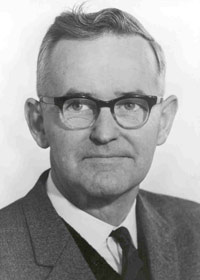
Alan
A. Brash
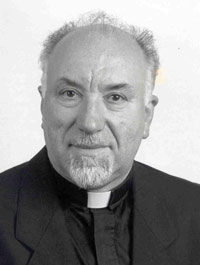
Ion Bria
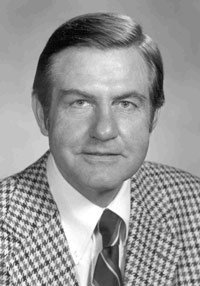
Keith R. Bridston
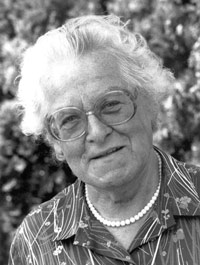
Marga
Bührig
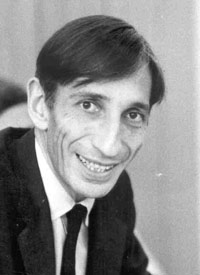
Ivan Illich
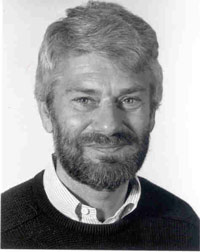
Jan
H. Kok
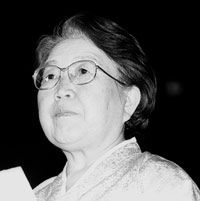
Lee
Oo Chung
Augustina Lumentut, a member of the WCC central committee from 1983 to 1991, died in August at the age of 65. A minister of the Church in Central Celebes, Indonesia (GKST), she was the second woman to be ordained a pastor of that church and the first woman to be elected moderator of a GKST synod. Her biography by Margaret Kirk, Let Justice Flow: An Asian Woman Works Creatively for the Liberation of Her People, was published in 1997 by ISPCK of Delhi, India.
Steven Weagba Muin, Jr, former general secretary of the Liberian Council of Churches, died on 14 August in Monrovia. Muin also served the ecumenical movement as Africa regional secretary for the World Student Christian Federation.
His Beatitude Abouna Philopos I, the first patriarch of the Eritrean Orthodox Church, died on 18 September at the age of 96. Abbot of the Debra Bijanou monastery before his consecration to the episcopate of the Ethiopian church, Philipos worked closely with His Holiness Pope Shenouda to achieve autocephalous standing for the Eritrean church, of which he became the founding patriarch in 1998.
Seth Pierre-Louis, president of the Protestant federation in Haiti, died on 15 December 2002 in Fort Lauderdale, USA, at the age of 46. After working for several years in the field of development, he became a pastor, serving his church in different positions. He was also the co-director of Radio Lumière in Port-au-Prince.
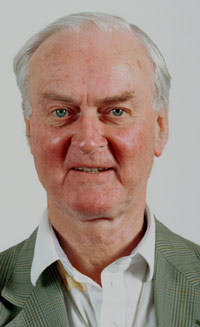
Richard Shaull, early interpreter of Latin American liberation theology and a speaker on “the church and revolution” at the 1966 Geneva conference on “Church and Society”, died on 25 October at the age of 82. Shaull’s teaching career was spent at the Presbyterian Seminary in Campinas, Brazil, and at Princeton Theological Seminary in the USA. Among his publications were the books Containment and Change (with Carl Oglesby), The Reformation and Liberation Theology and Pentecostalism and the Future of the Christian Churches (with Waldo A. Cesar).
Metropolitan Timotheos of Corfu, coordinator of relations between the Greek Orthodox Church and the European Community, died on 15 March at the age of 63. He led that church’s delegation to the WCC’s Harare assembly in 1998, and in early 2002 he headed the first official delegation from his church to the Vatican. He was a gifted scholar who studied theology, sociology and pastoral care in Greece, England, the USA and Italy.
Dieter Trautwein, a liturgist and theologian who from his early years was a favourite seminar leader at the Ecumenical Institute at Bossey, died on 9 November at the age of 75. An editor of the ecumenical hymnbook Cantate Domino, he was the author and translator of numerous church songs and hymns. He participated in the Accra meeting of Faith and Order in 1974 and was one of the worship planners for the Vancouver assembly in 1983. Trautwein also became well-known throughout the ecumenical movement for his support of the anti-apartheid struggle in South Africa and for honouring the memory of victims of the Holocaust.
Per Voksø, a participant in the first assembly of the World Council of Churches and member of the WCC central and executive committees from 1983 to 1991, died on 28 December at the age of 79. He was active for many years in the Church of Norway, Norwegian Church Aid, the Lutheran World Federation and the YMCA-YWCA. He helped to organize his church’s council on ecumenical and international relations and became the founding president of the national council of the Church of Norway. Before entering the full-time service of the church, he had been a professional journalist and editor for the Norwegian edition of the Reader’s Digest.
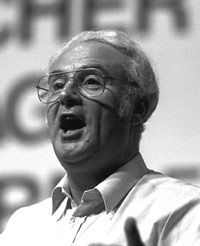
Dieter
Trautwein
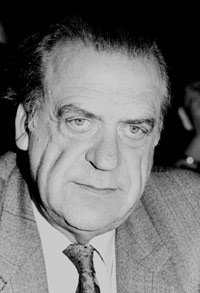
Per
Voksø